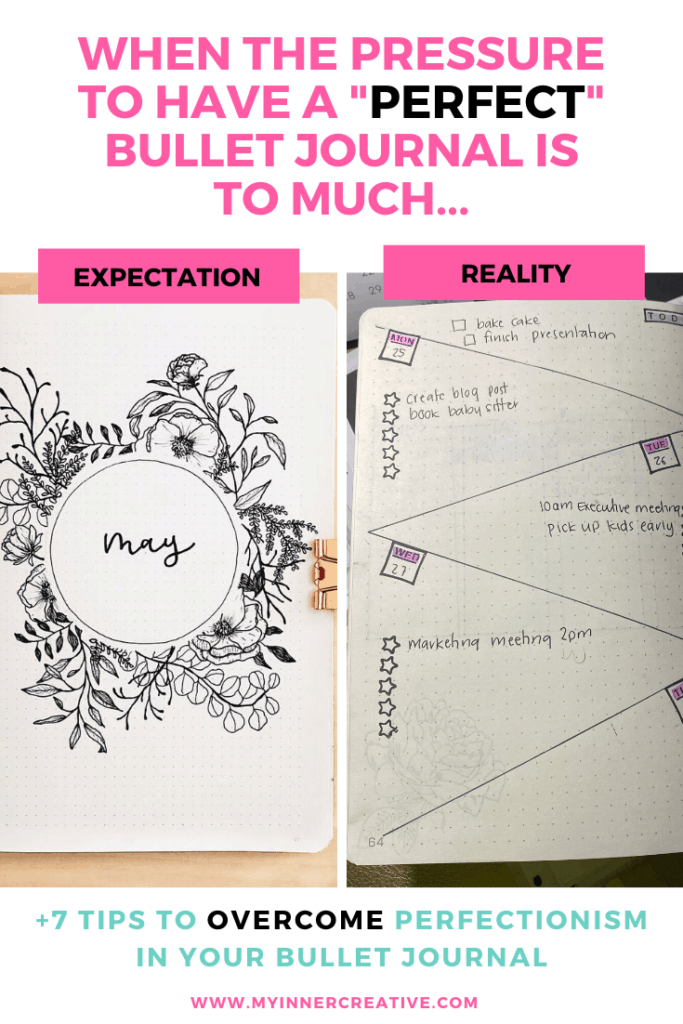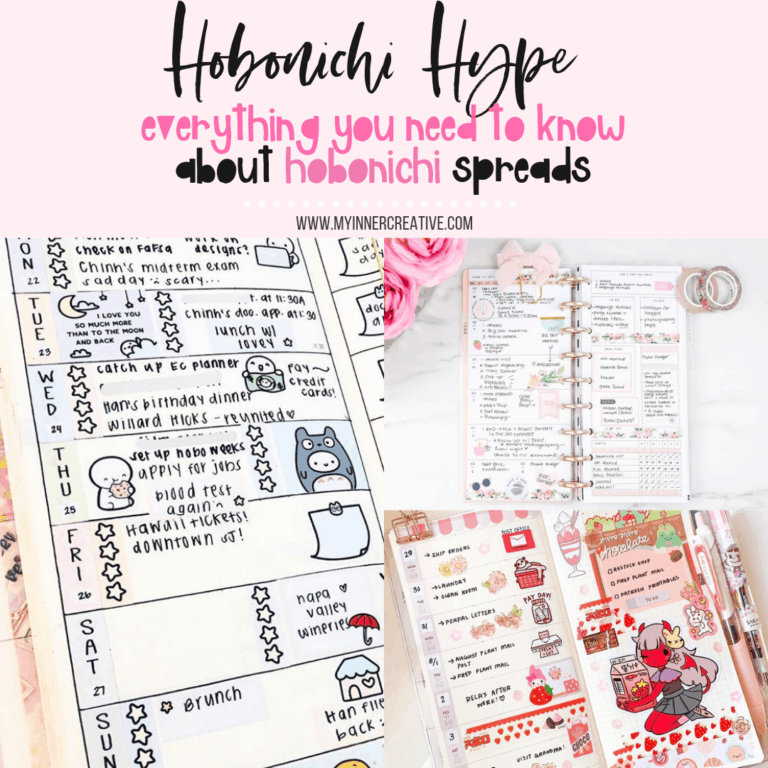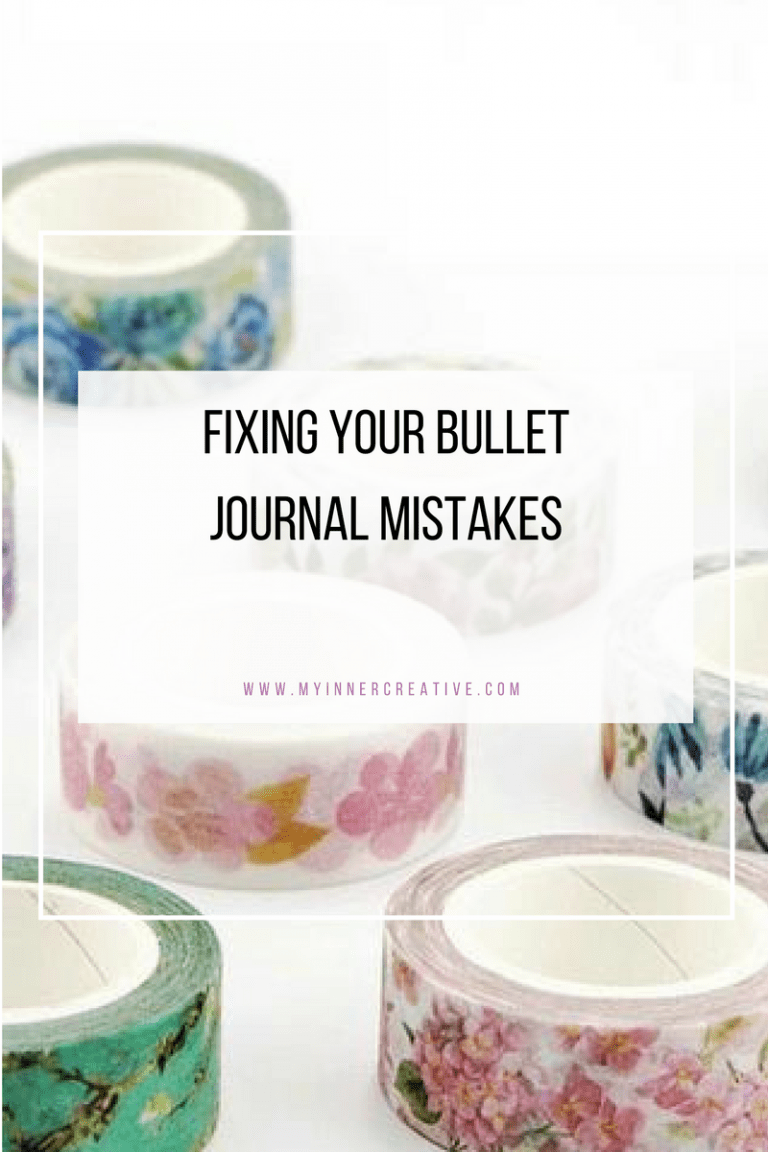Is perfectionism ruining your Bullet Journal Experience?
Want to see the original post for this on perfectionism and bullet journaling? Check it out here. Want to see some messy journals to make you feel totally normal?
You’ve seen Bullet Journaling all over the web, and pinterest and social media. It looks like an amazing tool for productivity and keeping your notes and schedule in order…..BUT…..you cant get past it when you make a mistake! You’ll pulling out pages and ripping out your notes. Perfectionism can kill or ruin your bullet journal experience.
So today, we are going to have a look at what the experts say, and come up with some simple strategies for those of us that struggle with perfectionism to overcome some of the issues you might face with bullet journaling!

WHAT IS PERFECTIONISM?
Perfectionism is often seen as a positive trait that increases your chances of success, but it can also lead to self-defeating thoughts or behaviors that make it harder to achieve goals, be productive or even create new things.
It may also cause stress, anxiety, depression, and other mental health issues. People who strive for perfection out of feelings of inadequacy or failure may find it difficult to get started in Bullet Journaling, because of the huge amount of self criticism and not wanting to “mess up”.
This is esspecially clear when starting a new journal and so many people head to Facebook to go over what they should post on their first page.
We are then bombarded with amazingly artistic spreads that look amazing, and can some people really fixate in on the self criticism and judgment.
Perfectionism refers to feeling the need to set high goals and achieve all of them. Perfectionists often find themselves with the cognitive distortion of accomplishing all or nothing. They are very critical of themselves. They often find themselves in a pool of ‘never getting enough’. This can lead to unrealistic self-expectations.
Perfectionism if taken to the edge can lead to fear of not being up to the mark and can hamper the self-esteem of an individual. Extreme perfectionism often lays the roots for depression, anxiety, and panic attacks. When taken too far, the striving for perfection can lead to negative outcomes, like procrastination, a tendency to avoid challenges, toxic comparisons, and a lack of creativity
WHAT ARE SOME SIGNS THAT YOU ARE BEING A BULLET JOURNAL PERFECTIONIST?
Perfectionism is a trait that most people at some point in their lives have displayed. However when it is hampering your ability to be productive you might start seeing that it is a trait you might want to work on. Here are some ways to determine if perfectionism is affecting you negatively:
- Not be able to perform a tasks on your to-do list or even writing the tasks down, unless they know they can do it perfectly, in the time needed and without issue.
- View the end product, like your bullet journal spread and layout as the most important part of any undertaking. As a result, you focus less on the process of learning or completing a task to the best of their ability and focus more on how it needs to look.
- Not see a task as finished until the result is perfect according to your standards which might be highly self critical and prevent you from even starting to avoid the feeling of failure.
- People with perfectionism may not want to begin a task until they know they can do it perfectly – this means you might end up procrastinating and not getting ANY tasks done at all.
HOW DOES OUR PERFECTIONISM CRIPPLE PRODUCTIVITY?
In transactional analysis psychotherapy we talk about something called a Be perfect driver, an internal part of our personality that demands perfection and can cripple our productivity. Perfectionism is actually a fear based part of our personality with links back to our early childhood. As we grow and develop in childhood we learn ways that those around us expect us to be, ways of being that keep us connected, win us love and deliver needed attention. As we reach adulthood, this drive for perfection can stunt our ability to engage with creativity.
Kirsten Antoncich, an experienced, UKCP Psychotherapist who works with both children and adults in Yorkshire.
HOW DOES PERFECTIONISM STUNT OUR CREATIVITY IN YOUR BUJO?
In essence, we are at our most creative when the judgmental mind is left
outside of the process. Many research studies have found that creativity
expands when the logical or rational mind is not set aside in favor of
creative energy. For those who are perfectionists, creativity can certainly
be hampered by the cautionary nature of the rational mind.As perfectionists are generally afraid of making errors-anything short of perceived perfection is believed to be inferior-the creative process is necessarily hindered by the fear of making a mistake. As creativity needs space and room to become expansive and realize its full potential, the stifling nature of perfectionism will stifle imagination and ingenuity. Indeed, when a wabi-sabi attitude is embraced by the individual, true creative energy expands enormously.
Dr. Carla Marie Manly, a clinical psychologist, author, and advocate based in California
Perfectionists would rather avoid crafts and activities if there is any
chance inadequacy could trigger them. They feel like the enjoyment would not be worth the potential anxiety about it.To a perfectionist, getting it right, becomes the assumed goal of every
Jodi Aman LCSW, Psychotherapist, YouTuber, and Author of *You 1, Anxiety 0, Jay Jay Myra
activity. One tip to help is to consciously take a step back and think
about the purpose of the activity. From there you can notice, and then
commit to, the goal of fun, reminding yourself that nothing else really
matters. This can take the pressure off getting it right. If you practice
this often, you can release the hold perfectionism has on your life.
Perfectionism isn’t just skipping things because you don’t like failing or
making a mistake. Underneath the tight grip of perfectionism is fear of
judgment and avoidance of shame.Not everyone is a prodigy, but when it comes to a perfectionist’s viewpoint,
you don’t do something until you are perfect at it.Being a grown adult, we sometimes think things are easier than they are. We don’t normally paint with watercolors or sit down and free write in a
Vicki B. Smith, LPC, Licensed Professional Counselor in Atlanta, Georgia. She has been in
journal. Even though we know how to pick up a paint brush, we haven’t so we don’t.
private practice for 20 years and specializes in working with perfectionism
and people pleasing and use mindfulness and Internal Family System
Perfectionism is directly correlated with anxiety, and anxiety is always about trying to gain control over something we fundamentally have no (or limited) control over. No matter how you look at it, the major communication of perfectionism is “If I make a mistake, all is lost, but I do it perfectly, everything will be okay.” When we say it out loud we can hear how superstitious perfectionism is – it’s an attempt to control the outcome, but that’s exactly why it’s such a major impediment to creativity. Creativity requires being present in the moment, entirely absorbed with the magic of the task at hand and detached from results! The perfectionist is more concerned with the outcome than the experience. The desperate, anxious need for control becomes more important than the joy of the creative process itself, and doesn’t allow the perfectionist to take risks, to try things, to play.
Mollie Birney, M.A. Clinical Coach and Recovery Consultant
WHAT ARE SOME WAYS TO OVERCOME PERFECTIONISM IN YOUR BULLET JOURNAL?
What is amazing about the bullet journal method is it is flexible to you, and your needs. So lets look at some ways you can practically engage with the process and not be stressed out or anxious about making those mistakes!
TIP 1: PLOT OUR YOUR BULLET JOURNAL FIRST
Take some time, and some spare paper to map our what you are hoping to get out of the bullet journal, jot down the collections you want to start, the topics you want to cover and even look at mapping out how you think you might like your weekly spreads to look.
You can also use post-it notes to past into your journal to move ideas around until you are happy with the layout and the look and feel.
TIP 2: USE A PENCIL FIRST
When you crack open that new journal and all that possibility is sitting there staring at you, use a pencil to first draft what you are wanting to achieve on those pages.
You could also buy a really cheap, junk journal and test your ideas or layouts there first before placing it in your “special” or new journal.
Intervening on perfectionism requires the perfectionist to risk testing out that superstition. They need to be willing to risk a mistake, and still have things turn out okay. The first step to this is being compassionate with themselves. Perfectionists are notoriously self-abusive, its how they keep themselves in-line and on-track, so learning new methods of self-talk throughout the creative process is crucial. For the perfectionist, meeting a mistake with kindness is a courageous act because it risks not abusing themselves into getting “back on track. Perfectionists need the corrective experience of making a mistake, meeting it with kindness, and discovering that they’re still loved and valuable.
Mollie Birney, M.A. Clinical Coach and Recovery Consultant
TIP 3: USE ERASABLE PENS OR USE MINIMAL SUPPLIES
Just take out the minimum supplies necessary. Overstimulation and having too many options and decisions can delay and bring out perfectionism. Bring out a few things that you feel you need to get started for arts and crafts, and only a pen and a journal for journaling, don’t worry about having five different colors of pens.
Dr. Ellen Ettinger, doctor and a life coach, with a specialty area in personal productivity and time management.
This might seem really obvious, but using an erasable pen like Frixons, mean that if you make a mistake you can erase it and not feel as though the entire page is ruined.
Being smart about your stationery purchases would be a good step in ensuring you are not disappointed with your creations, as you keep creating in your bullet journal.
For example buying alcohol markers or sharpies will end in sandness as they leak through all your pages in your journal, or the fact that some pens will leak through your pages badly.
TIP 4: TESTING YOUR PENS AND PAPER BEFORE YOU START
Making sure your paper is thick enough and that your pens do not ghost or leak are critical to keeping that perfectionism at bay. If you have a situation where your notebook or planner does not look like how you envisioned it, it will ruin your experience and lead to you being disengaged with bullet journaling.
Testing your new pens in the back of your journal is a great first page to start with. It will give you an indication of if you need to change what you are using or if you need to change your notebook or journal to be more robust to pen use!
Unfortunately, with the high and often unattainable standards created by seeking perfection, many tasks and activities become stressful rather than fun. The desire to make the best possible craft takes away from the simple pleasure of crafting aimlessly, and creative writing becomes a competition to write the best story or not at all.
Dr. Patricia Celan, a Psychiatry resident at Dalhousie University in Canada.
TIP 5: PRACTICE MAKES PERFECT
Set yourself some goals on trying new techniques and do them incrementally. Set yourself a little goal for example of writing something new a day or doodling every day. Make yourself little boxes where you can keep track of these in so that it doesn’t disrupt your usual layout, which might not work well with your perfectionism.
Pat yourself on the back for your efforts. Acknowledge your hard work. It is very important to accept that nobody is perfect and we are all made up of flaws. Don’t consider perfectionism as your personality trait, consider it as a behaviour which you can modify. Think about what triggers your perfectionism, is it the peer pressure? Is it the fear of not being unique or good enough? Identify it and write it down.
Resistance is common when it comes to a hobby or individual activity that has no right way to complete, which is what creative endeavors entail.
The constant pressure from an internal micromanager who believes things need to be done RIGHT and WELL the first time as well as trying to measure up in every aspect of your life, leaves you feeling inadequate, depressed, anxious and drained.
Vicki B. Smith, LPC, Licensed Professional Counselor
TIP 6: PRACTICE MAKING MISTAKES AND BEING COMFORTABLE WITH THEM
Set achievable goals for yourself. Vision yourself at a ‘good to go’ standard rather than aiming for the best. Does outperforming matter if in the process you burn yourself out? Do not aim for 120%. Aim for 100%. You will slowly learn to be happy with even 80.
Practise making mistakes When we grow up with a be perfect drive we can become afraid to get things wrong, to make mistakes. We stop seeing mistakes as a vital feature of learning and this fear of getting things wrong can start to paralyse us. By spending some of our time deliberately engaging in messy activities, in things that are less structured, more free, we can start to give ourselves permission to make mistakes. We need to gently teach our inner self that mistakes won’t cost us love, attachment, adoration – in fact they make us more a more effective human.
Kirsten Antoncich, an experienced, UKCP Psychotherapist who works with both children and adults in Yorkshire.
TIP 7: STOP PROCASTINATING
If you have to meet deadlines you don’t have to work until the last minute. Make your best effort and do it well in time. Redoing something over and over again will not necessarily make it perfect. You have to draw the line somewhere. Organise your tasks and if the fear of not performing well bothers you, challenge it, and do it right away. Don’t push it off to tomorrow. A great way to manage what is important is to use the Eisenhower Method for productivity.
Although nobody will complain that the job gets done
Claire Barber, a certified mental health consultant and relationship expert at Treeological
perfectly, there is also something to be said for completing it
efficiently. With this in mind, someone who struggles with perfectionism
also suffers from procrastination as they spend an excessive amount of time on insignificant details of their work. This prevents them from enjoying even those tasks which most people would find exciting and fun.
REFLECT ON YOUR PERFECTIONISM IN YOUR BULLET JOURNAL
To get past the barrier of perfectionism, try challenging those fearful
thoughts. Most people can acknowledge that their endless pursuit of
perfection is counterproductive and distressing. When you find yourself
caught in a negative thought spiral due to your high goals, take a step
back from the situation to breathe.Reflect critically on the situation: What have you done well so far? Make a physical list if that helps. Ask yourself why it’s important to do this particular thing perfectly, instead of just “well” and letting that go. Ask yourself what would happen if it was less than perfect. Ask yourself how it felt when you did do something perfectly before, and if that feeling is worth the misery associated with stressing when something is imperfect. Challenging your irrationally perfectionistic thinking can help you realize that the better goal is enjoying the process, rather than achieving perfection.
Dr. Patricia Celan, a Psychiatry resident at Dalhousie University in Canada





![50+ Examples – Creating the perfect Level 10 Life bullet Journal page – [Free Printable]](https://myinnercreative.com/wp-content/uploads/2018/04/MIC-Blog-Post-Covers-768x768.png)

